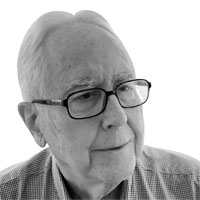Politics
Photo Illustration by The Daily Beast/Jerry Engel/New York Post Archives via Getty
Soviet Spy Morton Sobell, Radical Tied to Rosenbergs, Died Still Denying ‘the Historical Truth
WRONG HORSE
‘I’m a radical, not a liberal,’ he told me. Adding that at the present time, ‘it is best that the historical truth not come out.’

Trending Now





